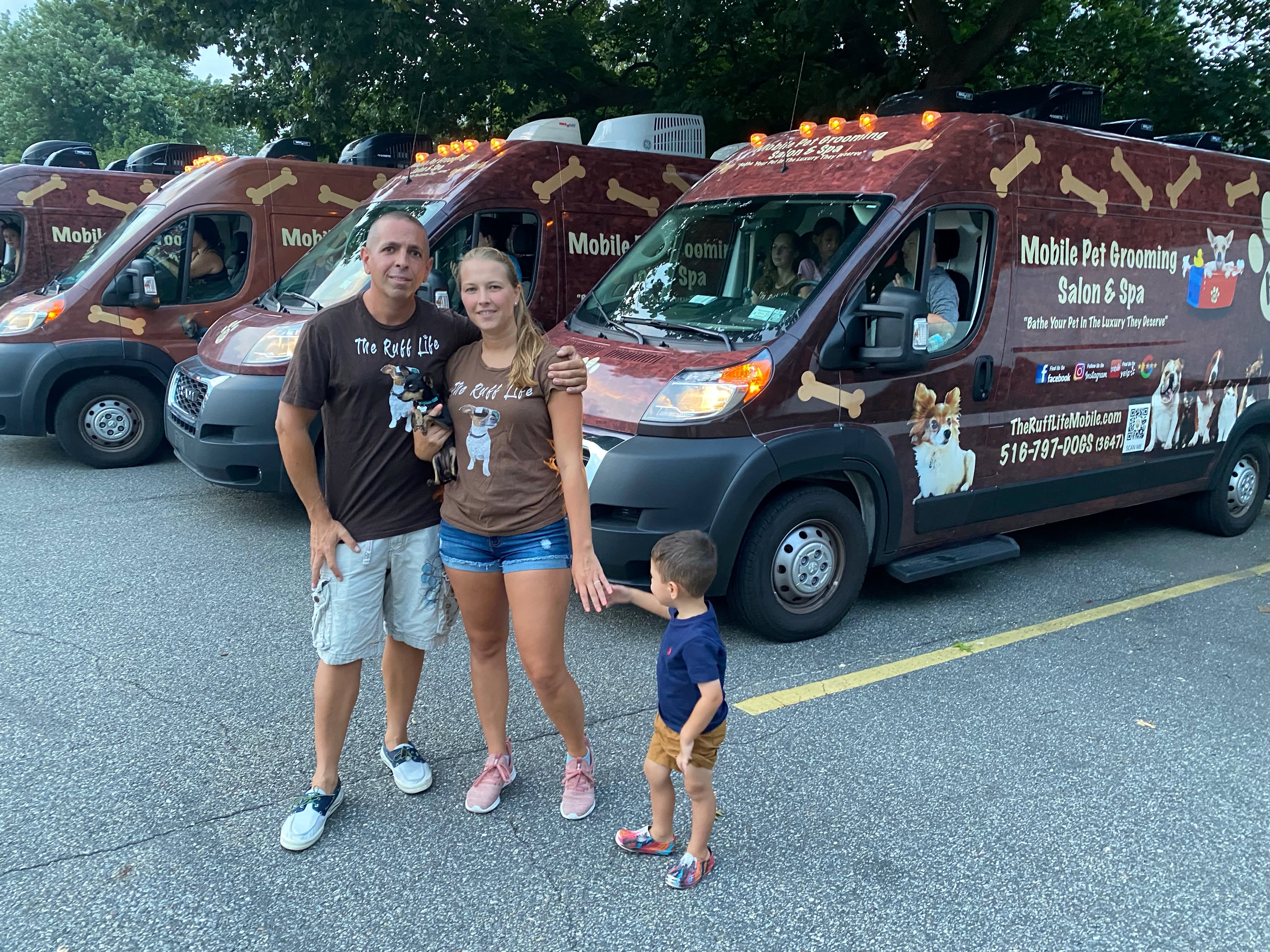Deciding if and when to expand a business isn’t an easy task.
When partners disagree, it also adds some tension into the mix, especially if they are married.
For Chris and Emily Elias, it was a debate over whether to broaden their existing mobile dog-grooming business, Massapequa, New York-based The Ruff Life, into other cities or to offer a local brick-and-mortar location that had them at a standstill.
“Taking this nationwide, you are talking about hundreds of millions [of dollars in sales],” 37-year-old Chris Elias said on CNBC’s “Money Court.”
The company is on target to bring in $1.4 million in sales this year, he noted.
Yet his wife believes there is still more money to be made locally.
“We know our clients love us already. I know the demand is there. National is not the way to go,” Emily Elias said.
It’s not uncommon for partners to disagree on the next step for their business, or even whether they should expand, said small business expert Barry Moltz, who used to own his own businesses and is now a consultant.
“The key to success is not making any fatal mistakes that are going to kill your business,” he said.
That means don’t invest more money than you can afford to lose, especially when testing out new concepts, Moltz explained.
Before you decide to expand, make sure you have some extra profit or cash to reinvest into the business. The Eliases, for instance, have $100,000 to put into their expansion.
It’s also important to figure out your “why.” It could be a larger profit, a way to diversify or to get bigger in order to sell the business, for example, said Moltz, who has worked with married partners who have disagreed over expansion plans.
More from Invest in You:
How to prevent money disagreements from destroying families
This is the No. 1 reason people want to change careers (and it’s not pay)
These tax credits could boost refunds for low-income families this year
Then, figure out how to test the growth strategy without going all in, and decide if you should test more than one thing at a time.
“You want to dip your toe in and see what works and what doesn’t work,” Moltz said.
Evaluate the results and, from there, either double down on a strategy that worked, or figure out something else if the results were bad.
Since the Eliases already found success locally, O’Shares ETFs chairman Kevin O’Leary, who presides over “Money Court,” decided the couple should expand by deploying more mobile vans in their current area. He also told them to come up with a business plan for a possible brick-and-mortar location.
The couple is now moving forward with the purchase of two more vans and are happy with O’Leary’s decision, they recently told CNBC.
“There’s millions of pets here,” said Chris, who now realizes expanding locally makes more sense than nationally right now. “The money’s here; the demand is here.
“The sky’s the limit.”
They have yet to make a business plan for a brick-and-mortar location. In fact, Emily isn’t sure now if that’s what their future holds.
Once they saturate the mobile market, they will look to expand the services they offer — whether it is a set location or another mobile service, like a fitness center, dog training or dog sitting.
“You have to offer more services,” Emily said. “The business is there, our clients are there, the money is there.”
TUNE IN: CNBC’s “Money Court” featuring Kevin O’Leary airs Wednesdays at 10 p.m. ET.
SIGN UP: Money 101 is an 8-week learning course to financial freedom, delivered weekly to your inbox.
Disclosure: NBCUniversal and Comcast Ventures are investors in Acorns.
